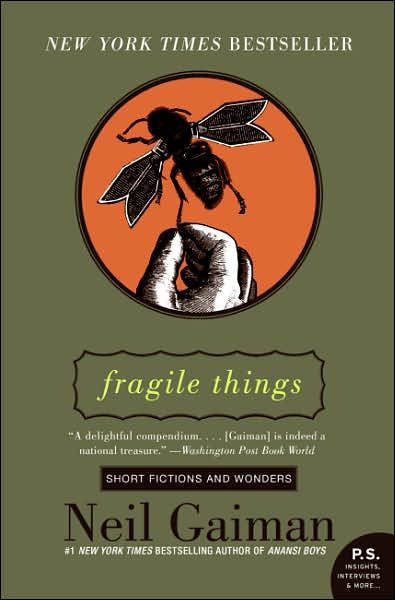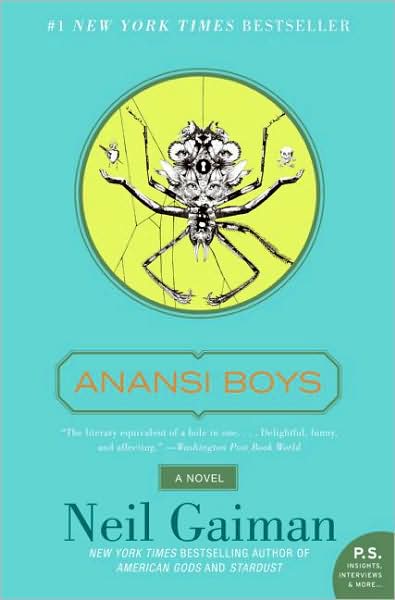Modern mythstory
I’ve been on a big Neil Gaiman kick lately. Keep in mind; I mostly gave up reading fantasy fiction when I turned 18. There’s only so much goofiness that a person can take before putting on the big girl shoes and reading stuff that doesn’t make one’s brain bleed out of one’s ears. But Gaiman is an entertaining storyteller, and he is very clever. And he incorporates multiple aspects of various
The thing about reading Gaiman is that you get out of a story as much as you want to. Me? I’m not very deep, so I don’t read very deep. Anyone wanting to go online to wikiup all the character manifestations and their strange domains is welcome to dig deeper — and will probably impress others.
I was first introduced to Gaiman (like everyone else) with The Sandman comic series (DC Comics) that ran from 1989 to 1996. Read ‘em. Thought they were inventive. Enjoyed ‘em. Put them back on the shelf. The basic story is the quest of Morpheus (the personification of the idea of “Dream” and brother to “Death”) after he escapes from decades of imprisonment. Along the way he meets up with comic book characters and figures from mythology and history like Calliope, the Furies, William Shakespeare — you get the picture. Nerdy, but the series bears repeat readings.
A few months ago I picked up "Fragile Things," because it’s a collection of short stories, and my long-term attention span had dissolved. The stories are an eclectic mix — some creepy, some funny, most weird. I skipped every single poem in the book.
After that, I read "Neverwhere" — which turned out to be my favorite Gaiman novel. The novel features Richard Mayhew, a lack luster Scotsman who slips through the cracks to an alternative London underground. I think I like this book the best because the protagonist is so very befuddled by everything he sees. Yup, he’s Arthur Dent reincarnated, and as I miss Douglas Adams’ quirky adventures, Gaiman is a good author to receive the baton.
luster Scotsman who slips through the cracks to an alternative London underground. I think I like this book the best because the protagonist is so very befuddled by everything he sees. Yup, he’s Arthur Dent reincarnated, and as I miss Douglas Adams’ quirky adventures, Gaiman is a good author to receive the baton.
"Anansi Boys" was next. (And, yes, I read this one out of order to "American Gods," but it doesn’t really matter.) This is another quirky, fun read, with an engaging plot and satisfying ending. This time, the mythology base is an incarnation of the West African spider god, Anansi, and his twin sons. Here’s one of my favorite passages, see if you don’t see a little glimmer of Douglas Adams hanging around the edges:
"Nothing?"
"Nothing," it said.

Charlie said "Are you extremely frightened of nothing?"
"Absolutely terrified of it," admitted the Dragon.
"You know," said Charlie "I have nothing in my pockets. Would you like to see it?"
"No," said the dragon uncomfortably, "I most definitely would not."
There was a flapping of wings like sails, and Charlie was alone on the beach. "That," he said "was much too easy."
And, last week I read "American Gods." Here, we get a bit darker in the plot (OK, a lot darker), but I was so engrossed by the “so what happens next” plot that I found myself reading until I fell asleep at night. The book follows Shadow, a down-on-his luck ex-convict hired by the eccentric Mr. Wednesday to do truly odd jobs. This is a quest-adventure across the United States with a mishmash pantheon of all sorts of manifestations of gods and ideals that we worship either in earnest or in passing. I hate when I’m reading fluffy fantasy fiction and it makes me think ... but I’d still recommend Gaiman to the creative and nerdy types. And you know who you are.

















